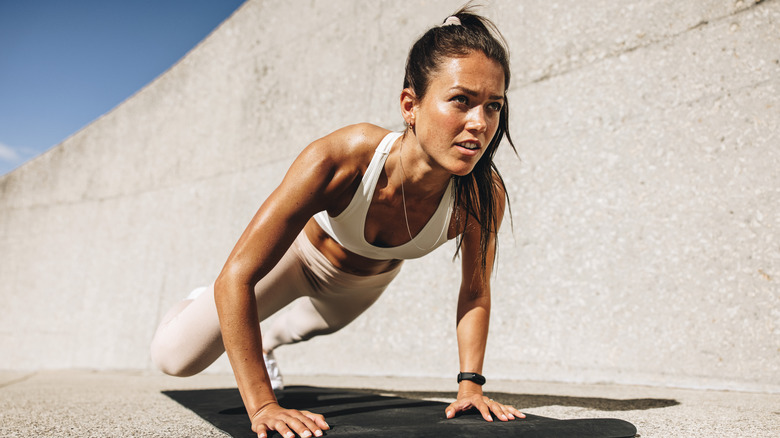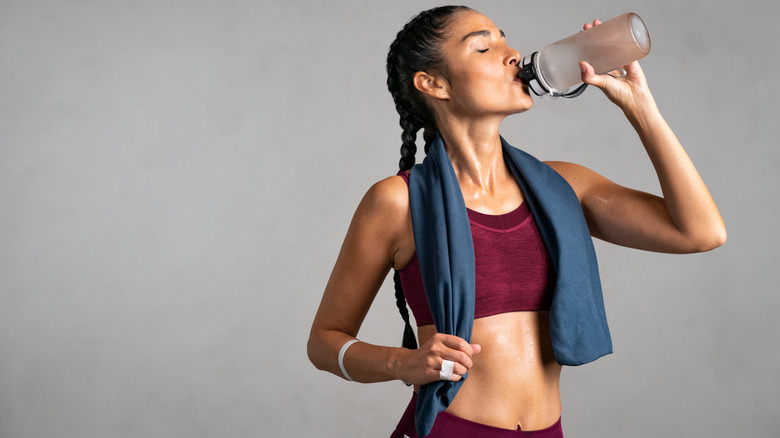Should You Eat More When You Increase Exercise?
Regular exercise is a great way to your boost energy levels and improve your overall health. That's because working out can tone and strengthen your muscles, promote cardiovascular health, and help you lose or maintain your weight (via Livestrong). When it comes to proper caloric intake, however, there are many factors to consider. For instance, if your goal is to lose weight, you'll want to burn more calories than you consume. You can achieve this by increasing exercise and cutting back on calories or just by working out more.
If you're exercising more and unintentionally losing weight, however, you may need to eat more to increase your daily caloric intake. You can start by consuming an additional 200 calories per day and gradually increasing this amount until you achieve the desired result. You may also want to increase your calorie intake if your appetite dramatically increases in response to working out more, even if you're trying to lose weight. As long as you're still burning more calories than you eat, you should continue to lose weight. Whether or not you should eat more also depends on the duration and intensity of your workouts. Leisurely 30-minute workouts are unlikely to affect your calorie intake, but more intense hour-long workout sessions may require a slight increase in calories.
How to stop overeating after a workout
For some people, however, eating an additional 200 calories might not feel like enough. Depending on the person, exercise can either increase or decrease post-workout appetite (via Shape). If you find yourself feeling ravenous after an intense workout session, you may find it hard to resist energy compensation. "After 45 minutes of exercise, stores of glycogen (your body's first available source of energy) in the muscles and liver are depleted. The body is hungry to refill these stores," Dr. Caroline Cederquist, a board-certified bariatric physician and founder of bistroMD, told Shape.
While it's certainly important to feed and refuel your body, you don't want to end up overeating after every workout. That's why it's best to drink plenty of fluids throughout the day. Oftentimes, post-workout hunger is mostly thirst. Drinking an adequate amount of water after your workout can help quench your thirst and restore your energy levels. If you're still hungry 30 minutes later, you should eat something with protein. In addition, eating something light before you exercise can help limit your post-workout hunger. Greek yogurt or an energy bar are great options to help satiate your appetite.

